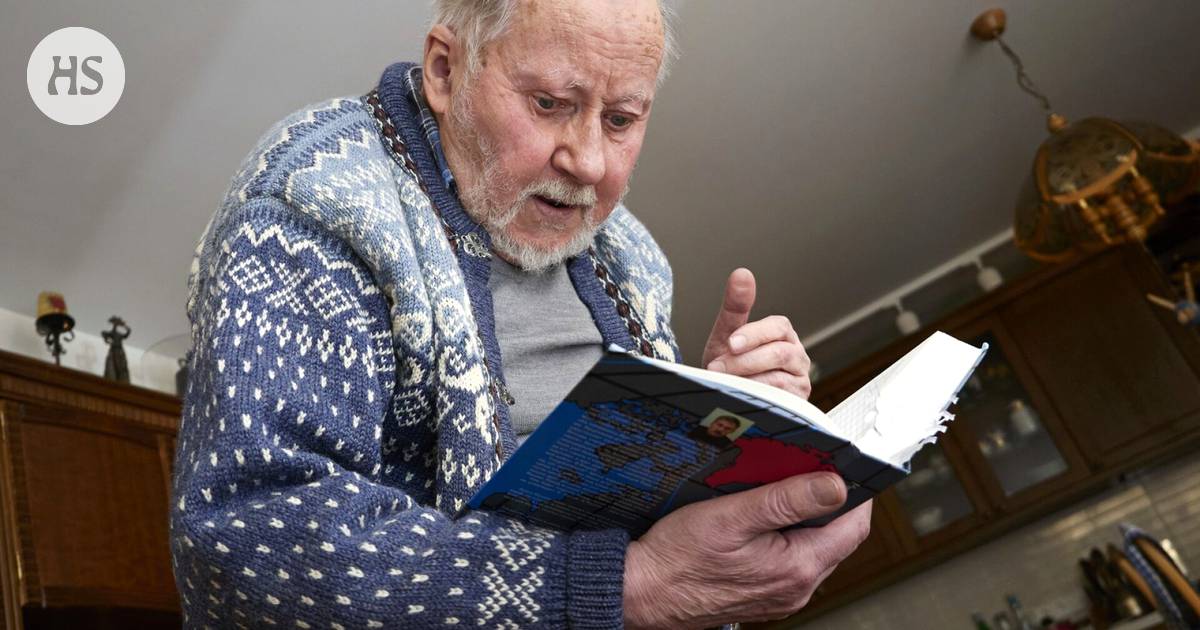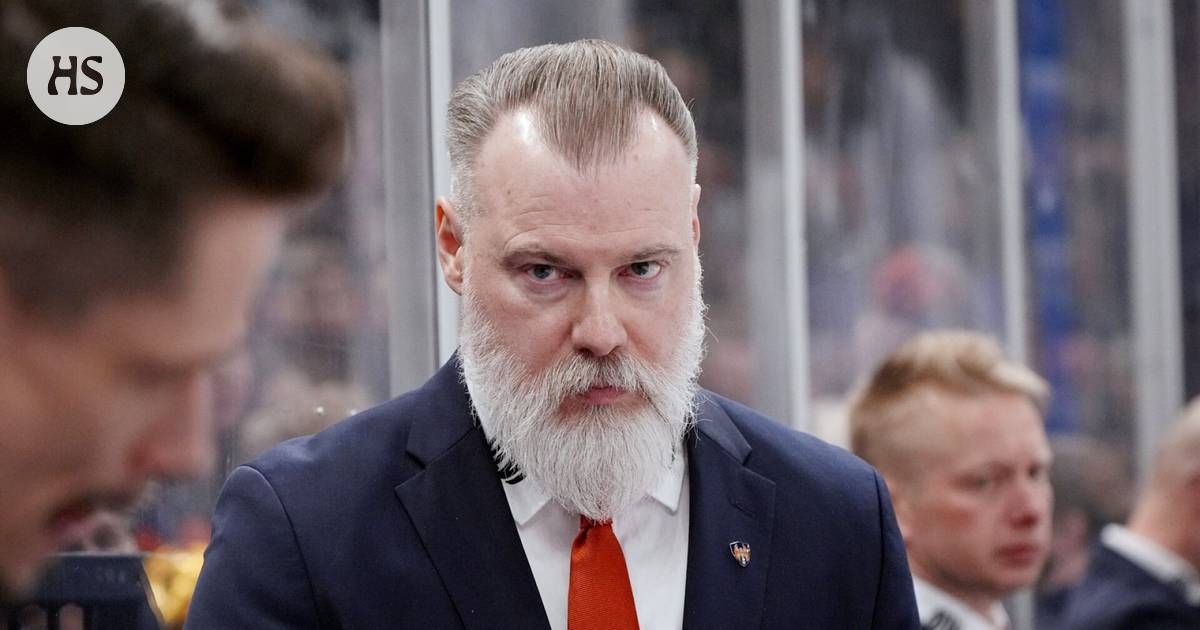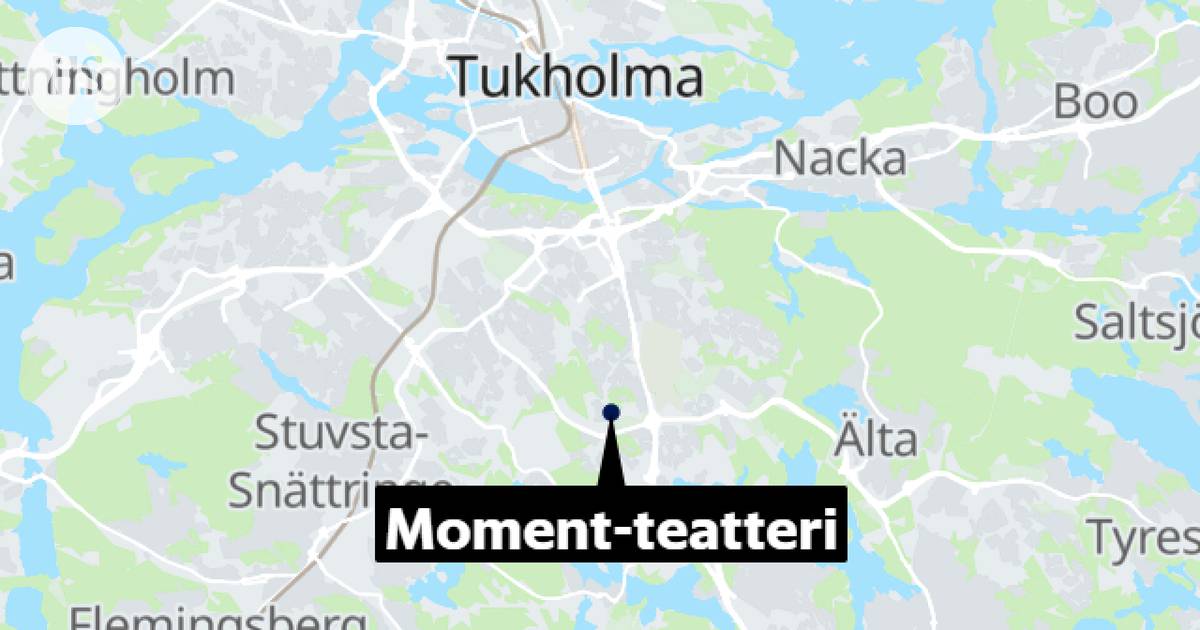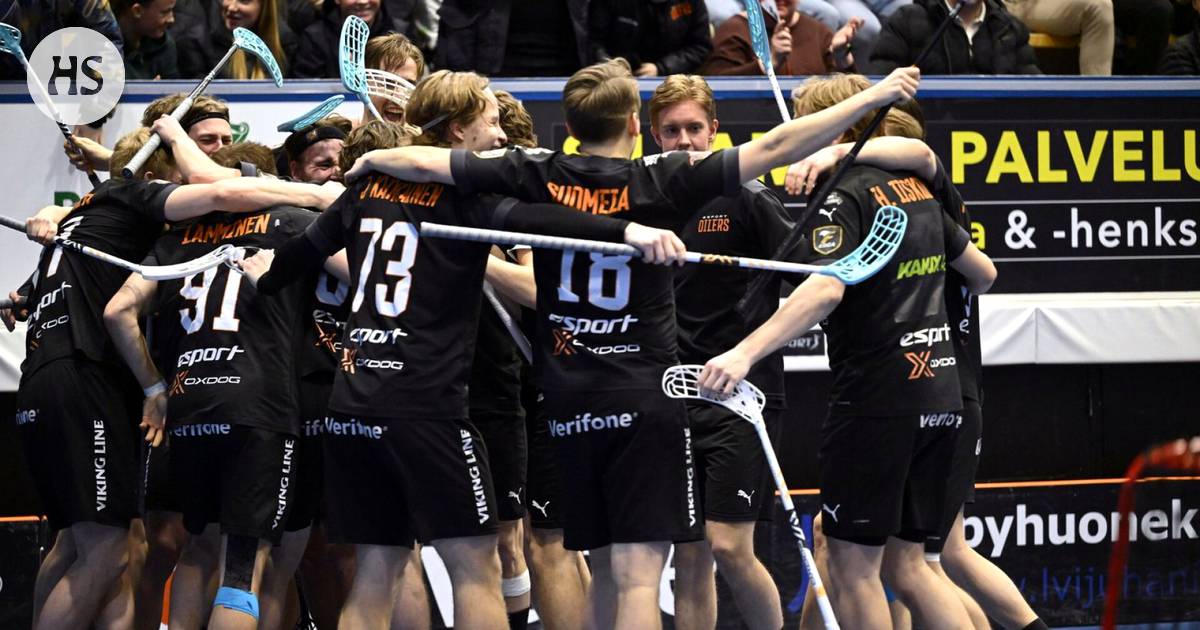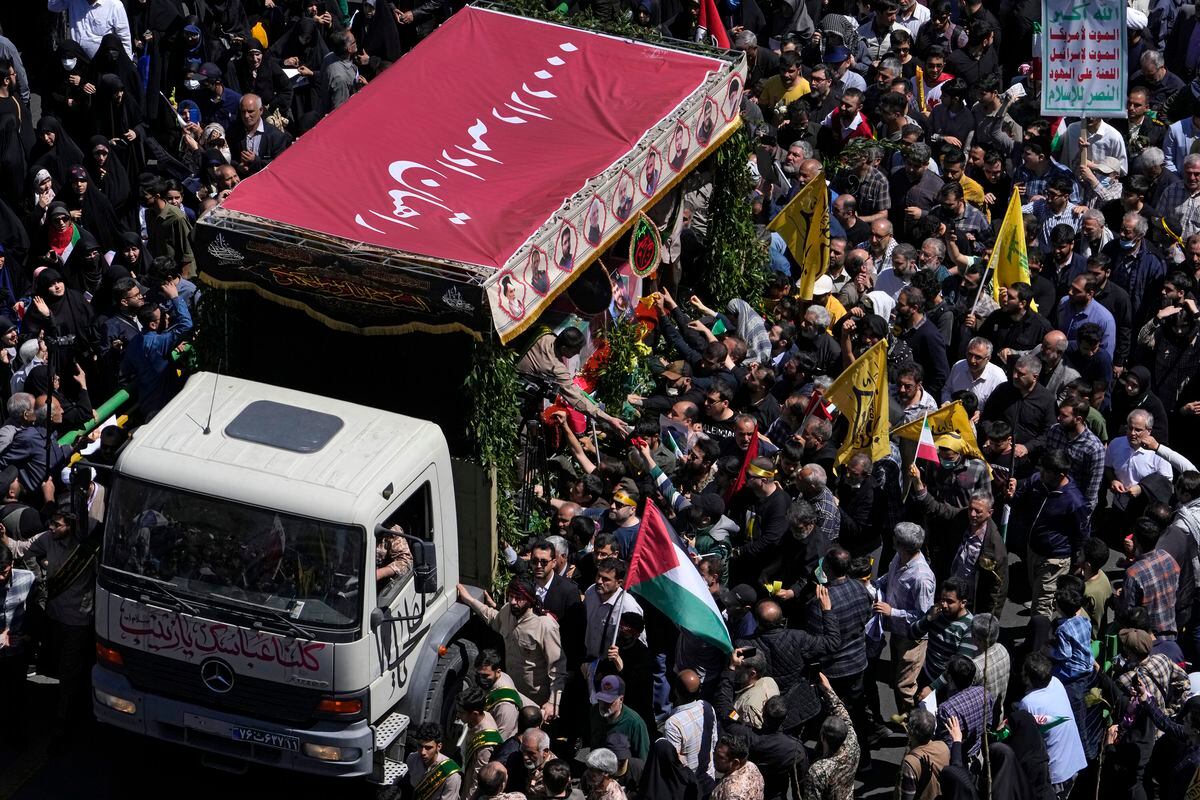Landsbergis, who has led Lithuania on the path to independence, says that Vladimir Putin is a man filled with suspicion, fear and hatred, like a man of the Stone Age. Landsbergis believes the rest of the world should completely isolate Russia.
Vilnius
Vytautas Landsbergisin the assistant sends a message and regrets that the appointment has to be postponed for a couple of hours. Landsbergis has decided to spend his Monday night demonstrating in front of the German embassy in the Lithuanian capital, Vilnius.
The protesters’ message to Germany is, “Don’t sleep, Berlin.”
They demand that Germany immediately stop buying oil and natural gas from Russia and significantly increase its arms aid to Ukraine.
Lithuanian comedian Oleg Surayev post a photo of the demonstration to Instagram. It shows Landsbergis, wearing a beret and a beige quilted jacket, listening to a speaker in a bow down in a bow.
Surayev has added two heart-mothers to his picture. As a sign of its appreciation for Landsbergis, who turns 90 next October and is considered by many Lithuanians to be the father of the independence of their 2.8 million country.
Landsbergisin the home is located on a bend in the Neris River in an inconspicuous alley a short walk from the Lithuanian Parliament. He moves from the hallway to the living room with arduous steps and sits on the reddish antique sofa next to the grand piano, above which is his grandfather. Gabrielius Landsbergis-Žemkalnisin (1852–1916) portrait.
The grandfather was a theater screenwriter who wrote for banned Lithuanian newspapers during the Russian tsarist regime and was sent to Smolensk, Russia, for a couple of years because of his activism, to repent of his heretical ideas.
Could be Landsbergis’ grandson here So did Gabriel portrait. He is Lithuania’s current foreign minister and sits on the government, which decided in early April to be the first EU country to stop buying Russian natural gas.
The same government has given asylum to opposition politicians who have fled oppression in Belarus and embarked on its own diplomatic war against China.
Landsbergisin another grandson Gerdenis Grickevičius brings guests glasses of water, and so begins the nearly two-and-a-half-hour interview, which is a triumphantly wavy monologue of Landsbergis. He’s hard to control with questions, but luckily it’s interesting to listen to.
If you tried to squeeze the interview and Landsbergis ’message into one sentence, it could sound like this: the beast is off.
The “beast” in Landsbergis’s speech is when Russia, when its president Vladimir Putin and when the Soviet Union. These three are in his mind a pretty seamless whole.
Instead of digging into the history of his country or family or his own life story, Landsbergis sees something much more ancient in the actions of modern Russia.
“When during the Stone Age a stranger came from the jungle or forest towards your tribe, he was considered potentially dangerous. What should be done to him? Maybe he should be killed, ”Landsbergis reflects on the mentality of the people at the time.
He says that Putin’s actions exude constant mistrust of the whole world around Russia. If someone refuses to be submissive, they may need to be destroyed.
“Than Genghis Khan”He says of Putin.
Landsbergis sometimes laughs at strange points in his speech. As when he remembers the Soviet leader Joseph Stalin the wisdom of life told. He also compares Putin to Stalin.
“When there are no people, there are no problems. That’s what Comrade Stalin said. “
According to Landsbergis, in Putin’s worldview, Russia’s independent neighbors cannot be friends. Because independence means the same as suspicion, a threat.
“Emperors are often full of fear. Fear that they are not emperors. Putin is full of fear, and that’s why he hates everything around him. He doesn’t trust anyone. Everyone else is suspects. He does not even trust his own ministers or generals. ”
Vytautas Landsbergis miraculously reads excerpts from the nationalist book “Third Reich” by Mikhail Yuriev, the late Deputy Speaker of the Russian Duma, which Landsbergis considers to be Vladimir Putin’s “Mein Kampf”.
If Putin does not trust others, Landsbergis has no reason to trust Russia over the course of his life. Not in any other Lithuanians.
From history lessons, one may recall that Lithuania has been a state entity since the 13th century. In the 15th century, the Grand Duchy of Lithuania was even the largest country in Europe, extending from the Black Sea to the Baltic Sea.
In 1795, Lithuania was divided by the surrounding great powers and mostly under Russian rule. In 1918, the country declared its independence and, after the war, was able to practice Republican life for a couple of decades, much of it as a right-wing dictatorship.
When Vytautas Landsbergis was a seven-year-old boy, Adolf Hitler and Stalin divided Europe into German and Soviet interests. Like Finland, the Baltic countries ended up at the mercy of the Soviet Union in the Molotov-Ribbentrop Pact, which was supposed to be a non-aggression pact between the parties but was followed by World War II.
Landsbergis remembers his childhood when Stalin ordered the Soviet army to attack small Finland. He watched that struggle with delight.
“It was a great source of inspiration for us.”
Finland retained its independence during the Winter and Continuation Wars, while the Baltic countries remained part of the Soviet Union for half a century. For about 130,000 Lithuanian civilians, Soviet citizenship meant forced relocations to Siberia.
Later in his life, Landsbergis visited Helsinki as the country’s head of state and took flowers Mannerheim to the grave.
Landsbergisista did not have to become a politician at all. He was still a professor of musicology at the Lithuanian Conservatory throughout the 1980s, specializing in the Lithuanian composer and painter. Mikalojus Čiurlionisin (1875 1911) for production.
But as the Soviet system began to show signs of liberation and resolution, Landsbergis jumped into politics. He and his friends became the leader of the Sąjūdis reform movement, which he founded in June 1988.
Less than two years later, Landsbergis chaired a parliamentary session declaring Lithuania an independent country, the first Soviet republic on 11 March 1990.
At that time of the world, one could not foresee what the beast would do. In the summer of last year, the Chinese People’s Army had crushed the Tiananmen Democracy Movement with armor. In Romania, on the other hand, shots of the execution company that had ended the communist dictator had been heard the previous Christmas Nicolae Ceaușescun and this wife Elenan life.
The last president of the Soviet Union Mikhail Gorbachev had spoken the language of the reformist perestroika, but the independence of Lithuania was too great for the great power. Gorbachev was greatly annoyed when Landsbergis called Gorbachev a “leader of a friendly neighbor” a couple of months before Lithuania’s declaration of independence.
Soviet armored forces flocked to Vilnius in early 1991, and January 13 went down in history as a “blood Sunday”. At that time, fourteen civilians were killed and more than 140 injured, Gorbachev’s reputation as a reformer suffered a severe blow, and the idea of the Soviet Union’s ability to change was called into question.
The violence proven in Lithuania helped the Baltic neighbors Latvia and Estonia to draw their own conclusions. They declared independence a year and a half later, and on Christmas Day 1991 Gorbachev was declared dead by the Soviet Union.
Vytautas Landsbergis has written dozens of books. His grandfather was a theater screenwriter, his father a famous architect, his son is a film director and writer and his grandson is the Lithuanian Foreign Minister.
Landsbergis had not yet heard by the date of the interview – 11 April – that Finland was well on its way to joining NATO. The same was done in the Baltic countries about a generation ago, and the trio joined NATO in the spring of 2004.
“That’s great, that’s great,” he says, asking to confirm whether support for such a decision can really be found in the Finnish Parliament.
According to him, it is possible that Russia will be angry with Finland. But it is also possible that Russia will get angry at Germany and next start demanding its secession from NATO. There are enough issues of anger for Russia.
“They [venäläiset] want to ban countries from joining the Defense Alliance. Because ‘we in Russia don’t want you to have your defenses. Be without defense, that’s good, ”Landsbergis says, speaking some sentences in line with Putin’s ideas.
Landsbergis says it was already clear to him in the autumn of 1991, when Lithuania became a member of the UN, that it must also join NATO. According to him, it was the only way to get out of Russia’s grip.
“That country, that nation, if it can even be called a nation… sometimes I call it cancer. It is the cancer of humanity, the cancer of Europe. And we don’t have pills for it, no treatment. ”
It would have been startling to read such words before Russia’s invasion of Ukraine in February. Landsbergis’ words even sound like hate speech.
But what are the angry words at a time when Ukrainians are being murdered and raped, destroyed? By Putin’s order, the implementation of the Russian armed forces and the support of the Russian people. According to a poll released by the Levada Research Institute at the end of March, 83 percent of Russians would support Putin’s actions – his popularity seems to have grown due to the war.
Landsbergis sat in the European Parliament from 2003 to 2014. He says at the time he tried to make his European colleagues see that Russia could not be treated like any other country.
“We have to learn to live without Russia. It is hard to see Russia becoming better, cooperative, helpful, positive. Maybe it’s possible that we’ll just leave Russia aside. “
Landsbergis believes Russia and its military machinery should impoverish the spiritual markets by stopping the country’s energy purchases.
“Don’t pay anymore. Let them sit on a rock in their own wilderness to think about how this happened here. That’s how it happened here that no one loves us. ”
Interview at the end the photographer makes a wish. Could former concert pianist Landsbergis perform a piece on his grand piano.
Landsbergis takes a moment in the hut but then agrees to sit on his stool. He plays an unnamed work by his favorite composer, Čiurlionis, which Čiurlionis dedicated to one of the loves of his life.
After the mini-concert, Landsbergis says he has written about a dozen works about the life and work of Čiurlionis, in addition to dozens of other books. He is one of those people who is not interested in retirement.
On the table next to the grand piano is the script of the latest work, which is about to go to print. The title of the book is “Why Us” without a question mark.
It deals with the period of independence of Lithuania. So this is the latest independence that is going to hold the nail in your teeth.
#interview #Putin #full #fear #hates #Vytautas #Landsbergis #father #Lithuanian #independence #good #Russia
